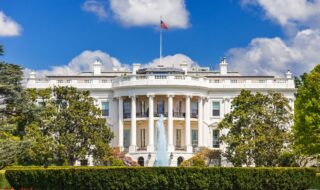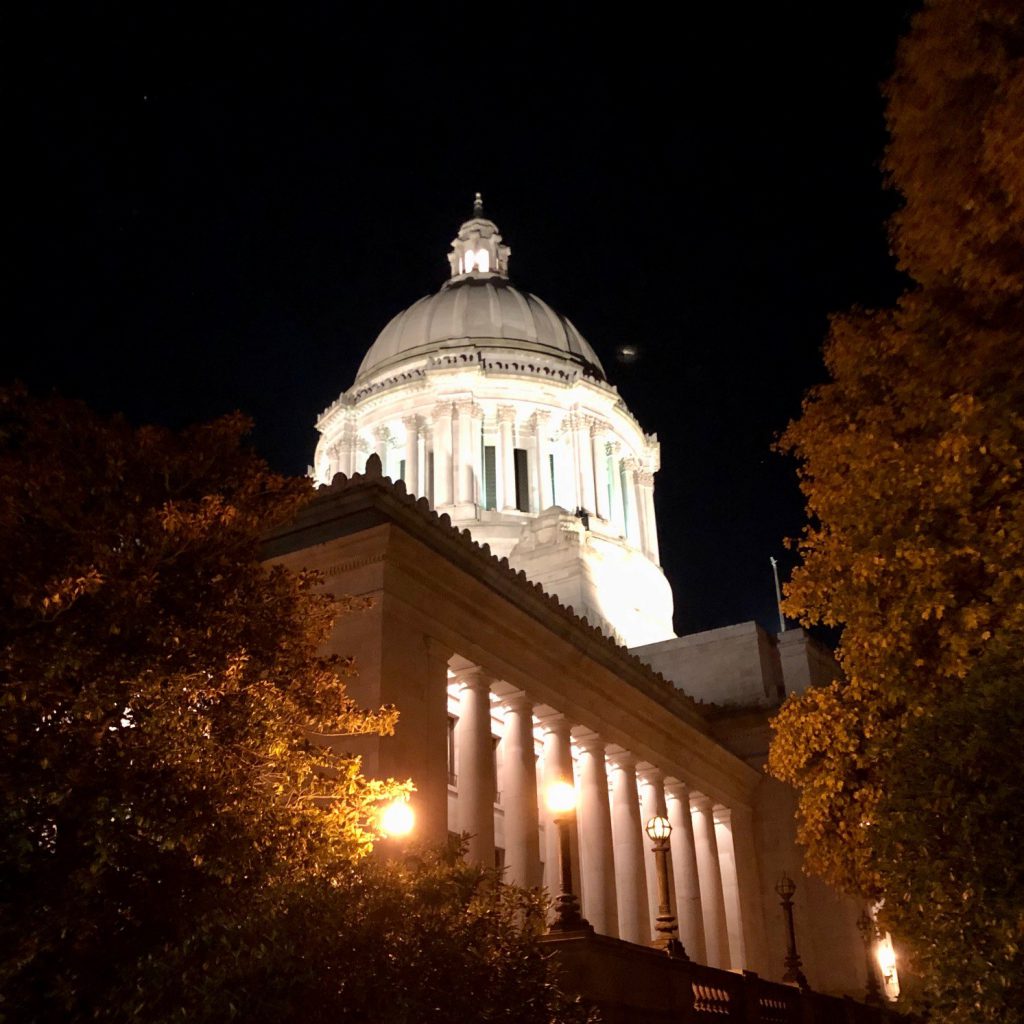January 29, 2021
NFIB Washington Legislative Update | Week 3
State Director Patrick Connor reports from Olympia on the small-business agenda for the legislative week ending January 29.
This week was quieter on the hearing front than the last two as committees took more time in executive session considering amendments and moving bills either to a fiscal or rules committee.
#OpenSafeOpenNow
While SB 5114, a bipartisan bill to move the entire state to Phase 2 re-opening, remains stalled in the Senate State Government Committee, Gov. Jay Inslee announced Thursday that two regions will advance to Phase 2 next week. NFIB continues to urge members to contact their state senators and demand Sen. Sam Hunt move SB 5114 out of his committee.
The seven counties moving to Phase 2 on Monday, February 1, are: King, Snohomish, Pierce, Thurston, Lewis, Grays Harbor, and Pacific. Interestingly, Gov. Inslee once again changed the rules governing re-opening. Under his latest scheme, regions now need to meet three of the four metrics listed on the state Department of Health’s re-opening dashboard, not all four. Counties will remain in Phase 1 or 2 for two weeks, not one. The dashboard will only be updated every two weeks, instead of weekly.
In a town hall meeting this week, Senate Majority Leader Andy Billig telegraphed the governor’s forthcoming announcement. Billig did not specify which regions might be moving to Phase 2, but one wonders if he expected the east region, containing his home county of Spokane, to advance. Perhaps Spokane being frozen in Phase 1 for another two weeks might encourage the Majority Leader to wrest SB 5114 from (Thurston County) Sen. Hunt’s iron grip.
Health Care
- SB 5149 – NFIB is on record opposing this request legislation from the governor to impose a “per member, per month” tax on health insurance policies that would increase the price by about $40 per year. This would be in addition to the existing health-insurance premium tax. Proceeds would be used primarily for public health infrastructure and services.
- SB 5377 – Sen. David Frockt invited NFIB to a briefing about his “Cascade Care 2.0” legislation introduced late this week. The bill seeks to improve the availability of “public option” health insurance plans, and reduce their costs. NFIB is reviewing the bill. We are the only business group included in the stakeholder process thus far. Since NFIB doesn’t offer an association health plan, and many of our members, their employees, and the families they support, purchase health insurance in the small group and individual market (including the state Health Benefit Exchange), our perspective on access and affordability is often sought out by legislators and agencies.
Labor
- SB 5130 – This bill would mandate employers provide employees a full, unredacted copy of their personnel files on request. More troubling, employers would be required to provide former employees a signed, written statement of the reason for and effective date of a termination. This is contrary to Washington’s employment “at will” standards. The bill would also authorize aggrieved workers to sue the employer for an alleged violation. A successful suit would carry a $1,000 civil penalty, plus the worker’s attorney fees and court costs, as well as equitable relief. NFIB opposes the bill.
- SB 5190 – NFIB also opposes this bill, which would create a legal presumption that health care workers contracting an illness that is the subject of a public health emergency were infected at the workplace, effectively making them automatically eligible for workers’ compensation benefits. We believe the presumption unnecessary and ill-advised. Under Washington’s workers’ compensation laws, which heavily favor workers, it is easy enough to demonstrate a workplace exposure. This presumption would force an employer to prove the exposure did not occur at work, making it even more difficult to overcome the existing rules that claims be construed in favor of the worker. The bill also contains more favorable unemployment insurance terms for health care workers leaving work or discharged from employment due to quarantine.
- SB 5172 – NFIB supports this bill, which would protect agricultural and other employers from being liable for as much as three years’ back pay for overtime hours paid at straight-time. A recent state supreme court decision invalidated a decades-old law exempting dairy (and a variety of other) workers from standard overtime requirements. In that decision, some justices suggested workers ought to be able to sue employers for back pay, which workers were not owed under the law in effect at that time.
- SB 5254 – NFIB has some concerns about this bill that would require employers to provide personal protective equipment (PPE) at no charge to workers if that employer requires PPE use at the job site. The bill would also require employers to allow workers to use their own PPE if the employer does not require it, unless the PPE creates a hazard of its own. NFIB reminds lawmakers that small businesses may have greater difficulty obtaining PPE during emergencies due to prioritization to health care or other frontline workers, and competition from bigger businesses buying PPE in bulk. Small businesses should not be penalized due to delays in securing PPE beyond their control.
Regulatory
- HB 1212 – NFIB received requests to review Rep. Mia Gregerson’s “right to repair” bill. This legislation seeks to allow small repair shops and individuals greater access to tools, instructions, and training to repair certain consumer electronic devices. Large electronic manufacturers would be required to sell tools and instructions needed to repair products at least five years old. The bill also seeks to incentivize these manufacturers to make access to their certified repair training programs more accessible and affordable to small businesses. Manufacturers are of course claiming that the bill could compromise their intellectual property or expose trade secrets. NFIB does have an issue with the penalty provisions of the bill. Specifically, the inclusion of a $500 per occurrence penalty in addition to fines allowed under the state’s Consumer Protection Act (CPA). NFIB has suggested an amendment to remove that provision. Rep. Gregerson appears willing to accept that change, particularly since a senate bill increasing CPA fines is moving in the Senate. Rep. Jeremie Dufault has introduced NFIB’s amendment. The bill is still being worked on in the House Consumer Protection and Business Committee.
- SB 5025 – This “Consumer Protection Improvement Act” would substantially increase penalties for CPA violations. Those penalties have not been increased in decades. The bill would also institute an additional fine for schemes targeting vulnerable populations. NFIB negotiated an amendment with the state Attorney General’s Office and Sen. Christine Rolfes, the bill sponsor, that would protect the right of small businesses to be reimbursed for legal fees and costs when successfully defending against a CPA lawsuit. However, Senate Law & Justice Committee chair, Sen. Jamie Peterson, offered a substitute bill maintaining that ability for all defendants. That version passed his committee this week, alleviating NFIB’s primary concern with the bill.
- SB 5188 – NFIB also objected to creation of a state bank. This issue has been previously balloted; 87% of members oppose this idea, only 4% are in favor, with 9% undecided.
Tax & Fiscal
- HB 1332 – NFIB supports this legislation that would defer local property taxes for businesses experiencing at least a 20% loss of revenue due to the COVID-19 pandemic and resulting government restrictions. The bill would also create a loan fund so local governments impacted by these deferrals would remain whole. Loans would be repaid as those deferred property taxes are collected. County treasurers raised concerns about how to administer the program. An executive session was scheduled, but no further action was taken on the bill.
Previous Reports and Related News
- January 23—Week 2 Legislative Report. House passes NFIB-backed B&O tax exemption for PPP, EIDL loans
- January 15–Week 1 Legislative Report. Senate Bill Would Stop the State from Following the “Roadmap to Ruin”
- January 10–Spokesman-Review Guest Editorial: Inslee Agenda Seeks to Destroy Even More Small Businesses
NFIB is a member-driven organization advocating on behalf of small and independent businesses nationwide.
Related Articles














